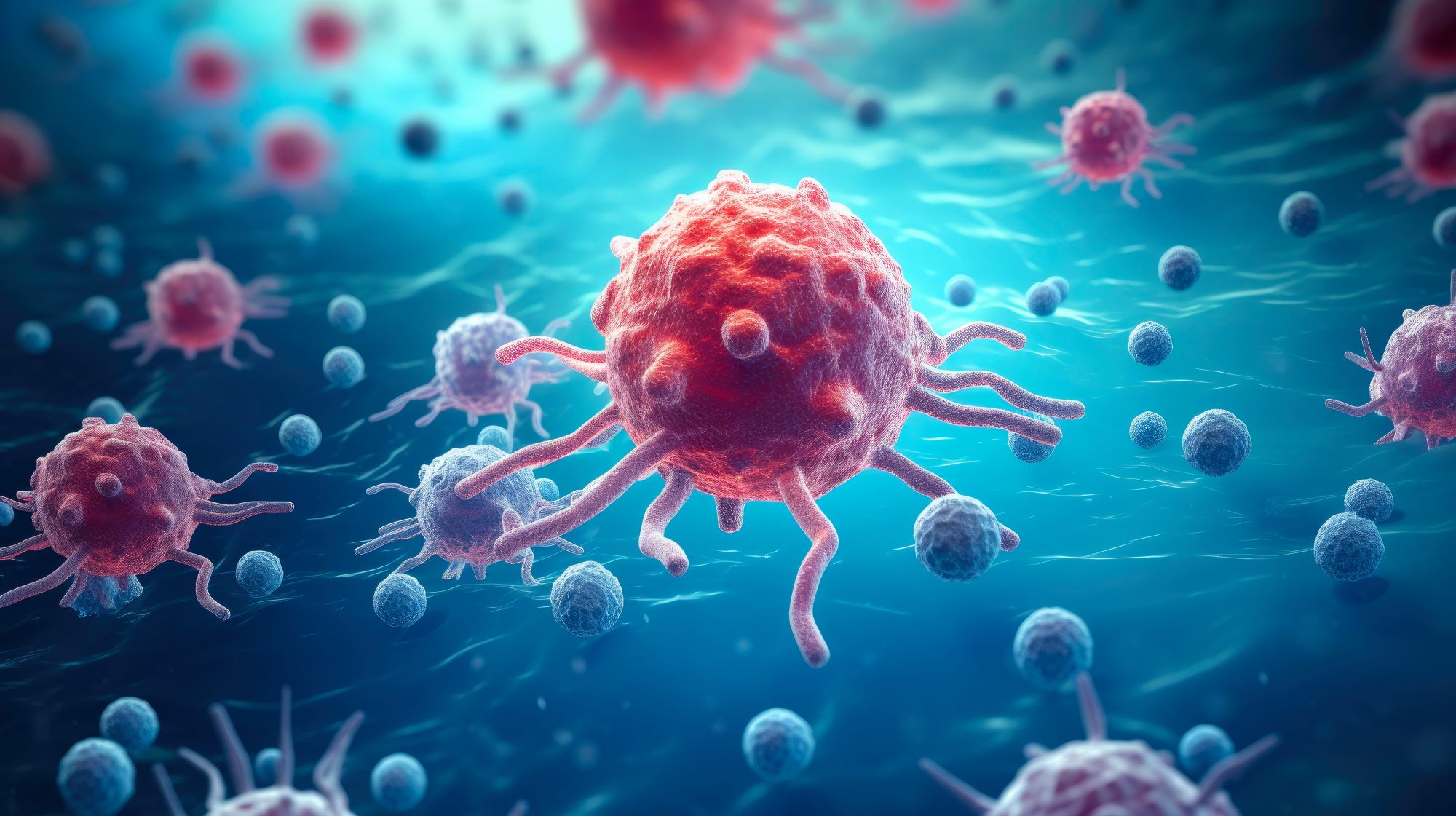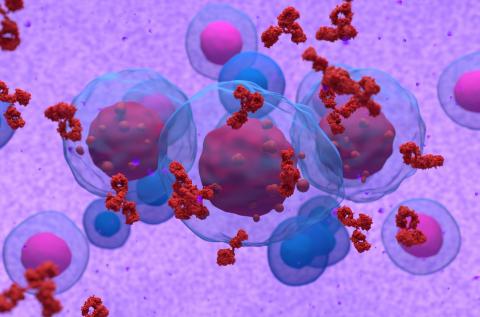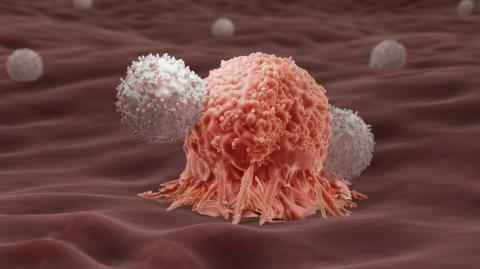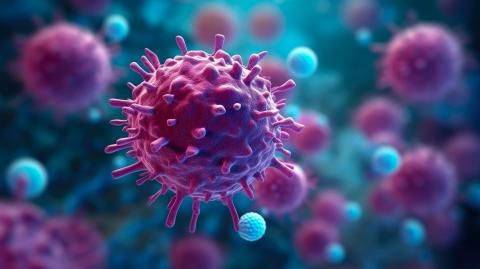Reactions: New generation of T-cells against myeloma more effective in the lab than traditional CAR-Ts
A multidisciplinary study involving several Spanish research groups has preclinically tested a new type of immunotherapy for multiple myeloma. Instead of modifying T cells to attack the tumour directly, as CAR-T cells do, they have managed to make them secrete bispecific antibodies, which bind to the tumour on one side and to other T cells on the other, attracting them to the tumour. According to the authors, this cell therapy was more effective than traditional CAR-Ts and could generate less resistance. The results are published in the journal Science Translational Medicine.

Fermín - Stab (EN)
Fermín Sánchez-Guijo Martín
Head of the Haematology Department at the University Hospital of Salamanca and Professor of Medicine at the University of Salamanca
The study is carried out by a multidisciplinary cooperative group coordinated by Dr Álvarez-Vallina, using a technology they have developed in recent years: T-lymphocytes producing bispecific antibodies, which act as a bridge between the tumour cell and the T-lymphocytes. This study analyses in detail, both in vitro and in an animal model of multiple myeloma, the effects of these engineered T-cells secreting bispecific T-cell Engager antibodies (STAb-T), which produce bispecific antibodies against an antigen present on plasma cells (BCMA) and against CD3 (present on T lymphocytes). The results are favourable and superior to those of CAR-T cells in these models. The work therefore lays the groundwork for potential clinical development of this strategy in patients with multiple myeloma.
The STAb-T cell strategy is novel and, in this in vitro model, appears to have certain advantages over CAR-T lymphocytes themselves in myeloma tumour cell lines and in the animal model used, based on increased cytotoxicity and a reduction in potential resistance mechanisms. However, as STAb-T cells have not yet been used in patients, it is not yet possible to assess their potential implications for myeloma treatment and how they might fit into the current therapeutic landscape. Toxicity data are also needed.
As with all scientific work, there are always limitations and caution must be exercised when assessing the potential clinical implications of this work, as this technology is in a very early stage of development, as mentioned above. The main limitations of the work are that the in vitro studies have been performed with tumour cell lines and in an immunosuppressed animal model, as the authors have also highlighted.
At present, targeted therapy against the BCMA target is well established for the treatment of myeloma patients, in the form of CAR-T lymphocytes, bispecific antibodies and conjugates, from advanced disease stages where they are already approved to earlier lines and even at new diagnosis, where they are in development. This new option is very attractive, but needs to demonstrate efficacy at least comparable to what already exists and with a safety profile that is optimal for patients.
Melero - Stab EN
Ignacio Melero
Professor of Immunology at the University of Navarra, CIMA researcher and co-director of the Department of Immunology and Immunotherapy at the Clínica Universidad de Navarra.
This study defines a novel strategy to enhance the anti-tumour effect of CAR-T cells. As is known, CAR-T cells encode for an artificial antigen receptor that recognises surface proteins present selectively or exclusively on tumour cells. In this case, the lymphocytes are transfected with a soluble bispecific antibody that binds to the same tumour antigen and the CD3 receptor to activate themselves and surrounding T cells. It is worth noting that Dr. Alvarez Vallina pioneered the molecular construction strategies that have given rise to CARs when he was working as a postdoctoral scientist at Cambridge University in the late 1990s.
It is a new idea and the effect against malignant cells appears very potent in cell culture and in immunodeficient mice engrafted with human multiple myeloma cells. CAR-Ts are the therapy of choice in myeloma refractory to conventional treatments and these strategies, if confirmed safe and effective in patients, could potentially improve existing ones.
These experimental studies could potentially be extended to other haematological tumours and solid tumours. Currently, extending the efficacy of such therapies beyond haematological malignancies is a challenge of great research interest around the world. There are multiple novel strategies and this work aligns as one of them.
Both CAR-T and bispecific antibody T cell engagers raise issues of acute toxicity in patients with hyperinflammatory cytokine-releasing syndromes. If clinical trials are developed, this aspect should be carefully considered and the production of the bispecific antibody should be regulated so that it is only expressed when it works by recognising the antigen or incorporating other safety measures.
"I am a close friend of Luis Álvarez Vallina [one of the authors of the article]".
Díez-Alonso et al.
- Research article
- Peer reviewed
- Experimental study
- Animals
- In vitro



